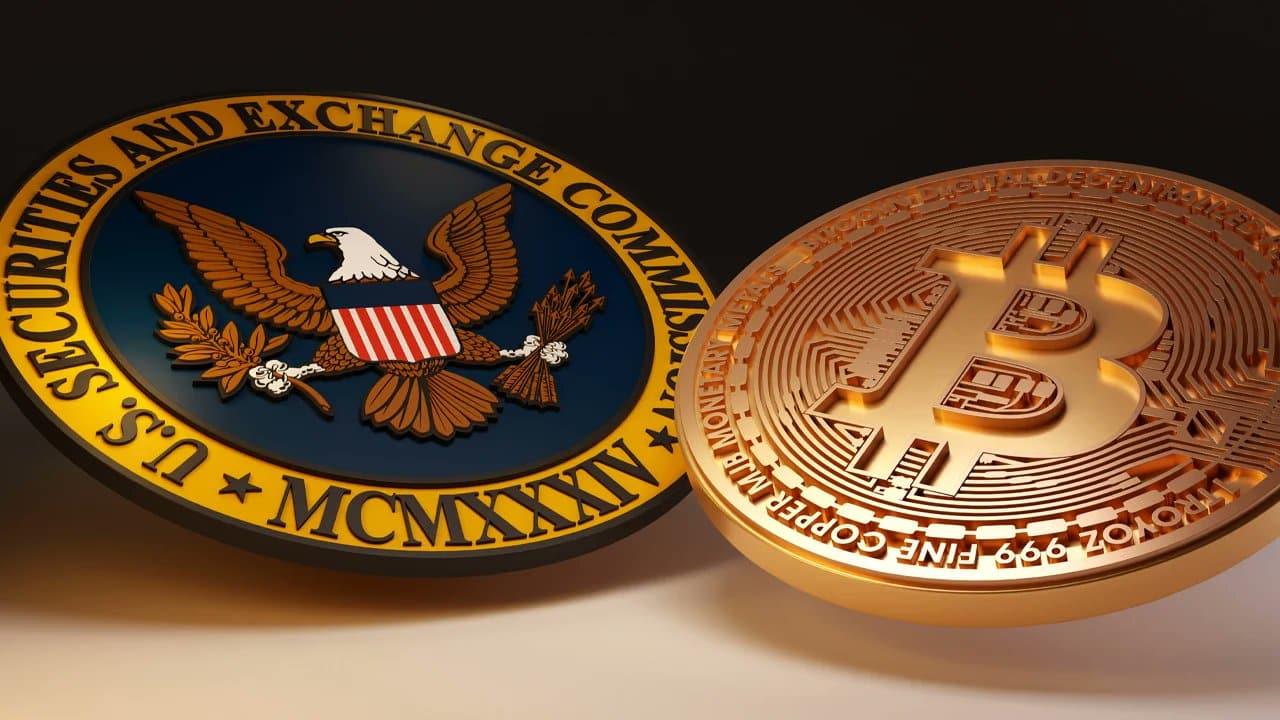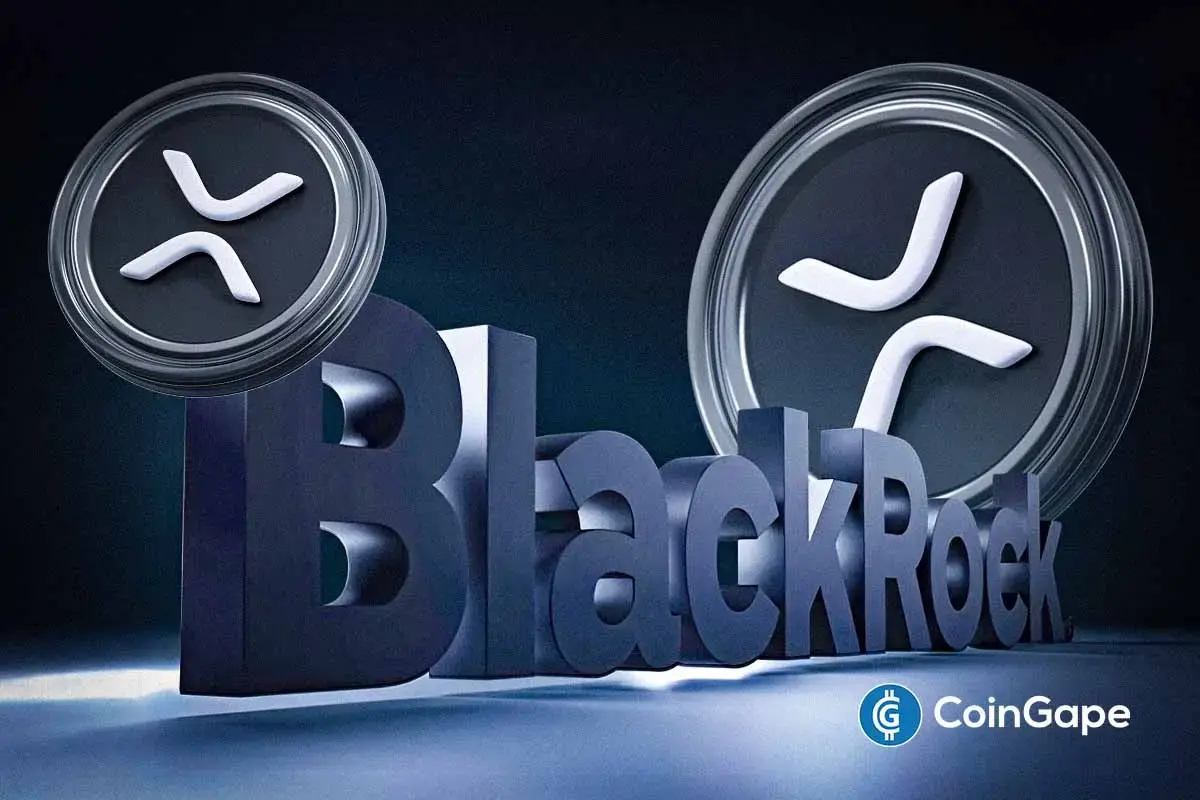Regulation
SEC Insider Reveals Reason Why Agency Eased SAB 121 For Select Entities

Recently, certain banks and broker-dealers received exceptions from the U.S. Securities and Exchange Commission (SEC) to custody crypto assets. This revelation comes despite the standing guidelines of Staff Accounting Bulletin (SAB) 121. Hence, netizens were questioning the actions of the agency and now there is an answer to this ‘bias.’
Why SEC Relaxed SAB 121 Rule For Banks & Brokerages?
The SAB 121 rules remain unchanged according to an SEC spokesperson. For context, SAB 121, issued by the SEC, outlines the accounting and disclosure obligations for companies holding crypto assets on behalf of customers. The guidance is primarily concerned with ensuring that customers’ crypto assets are protected and accounted for appropriately.
This comes handy particularly in scenarios of financial distress like bankruptcy or resolution. Meanwhile, FOX journalist Eleanor Terrett’s inquiry revealed that specific broker-dealers and custody banks have demonstrated to the SEC staff that their operational models differ significantly from those outlined in SAB 121.
According to the spokesperson quoted by Terrett:
“Certain broker dealers and custody banks have sufficiently demonstrated to SEC staff that their fact patterns are different from those described in SAB 121…such as ensuring that customers maintain ownership of their assets even in the case of a resolution or bankruptcy.”
These entities have managed to assure the SEC that they can maintain customer ownership of assets even under adverse conditions. Thus, they earned exceptions to the stringent requirements of SAB 121.
Furthermore, Terrett disclosed that the SEC’s accounting staff, who are responsible for SAB 121, have conducted private discussions with these financial institutions. These discussions, it appears, were not communicated to the SEC Commissioners. These Commissioners are now working to understand the substance of these conversations.
Also Read: GOP Whip Tom Emmer Accuses SEC Chair of Harassment
Industry Backlash On These Exceptions
While the U.S. House continued to hold President Joe Biden’s veto on the anti-SAB 121 bill, the SEC made the above-mentioned landmark decision. The U.S. regulator introduced a new method allowing banks and brokerages to exclude their customers’ crypto holdings from their balance sheets. Banks must, however, ensure that they manage all related risks effectively.
This decision was a positive development in response to the heated debate in Congress over the controversial crypto-accounting guidelines. According to a source at the SEC, the agency’s staff has begun providing guidance on specific arrangements that allow banks to avoid listing crypto holdings as liabilities on their balance sheets.
Popular banks have been in discussions with the SEC over the past year. Hence, they received approval to omit crypto assets from their balance sheets, provided they ensure customer asset protection in the event of bankruptcy. However, the SEC requires banks to implement additional safeguards and internal controls to protect these holdings.
This move ignited significant backlash from the crypto industry for the supposed “bias.” VanEck’s Head of Digital Assets Research, Matthew Sigel, lauded the latest move but also pointed out the flaws. In a post on X, he wrote, “Good news (albeit still a horrific process that now favors big guys vs. repealing SAB121 which would have set a level playing field).”
Furthermore, Custodia Bank CEO Caitlin Long, who has been expressing frustration toward discrimination in obtaining Fed masteraccounts, also chimed in. She wrote, “SEC leadership extracts revenge on the #crypto industry (one day after Ro Khanna’s White House session) by giving the big banks special ‘exceptions’ from #SAB121, while sidelining #crypto companies still subject to it. How are progressives OK with such corporate favoritism?”
Also Read: Stacks Price Soars 9% As SEC Ends Probe On Bitcoin Layer 2 Developer
The presented content may include the personal opinion of the author and is subject to market condition. Do your market research before investing in cryptocurrencies. The author or the publication does not hold any responsibility for your personal financial loss.
Regulation
John Deaton Lays Out 5 To-Do List

John Deaton, a prominent crypto lawyer, has outlined a five-point plan for regulation by lawmakers in the United States. In his latest post on X, he calls for urgent action to establish clear rules that will support innovation, protect users, and bring stability to the crypto sector.
John Deaton on the Five Crypto Regulation Priorities
Deaton’s first recommendation is to pass a law on stablecoins. He believes this can increase demand for U.S. Treasuries and reduce the cost and delay in sending money across borders. This, he noted, will help the United States play a stronger role in global trade.
John Deaton wants the US. Congress should clearly define which tokens are securities and which are commodities. This will help decide whether the Securities and Exchange Commission (SEC) or the Commodity Futures Trading Commission (CFTC) should regulate them. Without such clarity, regulators may continue to clash over control, and projects may face confusion.
He also raised the need for crypto exchange regulation. Deaton wants strict rules to ensure customer funds are not mixed with company funds. He suggests that exchanges hold full reserves visible on the blockchain. This way, they can avoid high-risk activities like offering large amounts for lending or using customer funds elsewhere.
In addition, Deaton suggests easing the tax burden. He proposes removing the capital gains tax on small crypto payments and allowing people to pay federal taxes in cryptocurrency without facing more taxes.
Lastly, he urges Congress to revise or remove the Accredited Investor Rule. John Deaton believes the rule locks out too many people from early investment opportunities. He warns that lawmakers must act before the 2026 midterm elections to avoid delays caused by political changes.
Stablecoin Laws May Arrive Very Soon
It is important to add that Deaton’s views support ongoing developments in Congress. A bill known as the GENIUS Act is already being discussed.
It suggests that the Federal Reserve would manage large banks issuing stablecoins, while state bodies would handle smaller groups.
According to recent reports, the global market for stablecoins now exceeds $234 billion, raising hopes that new U.S. laws will soon follow.
As mentioned earlier by President Donald Trump, lawmakers are likely to fasttrack the stablecoin regulation. The current timeline is slated for Q2 this year.
SEC’s Shifting Position on Oversight
The SEC, which once took a hard line on crypto regulation, is now adjusting its stance
CoinGape noted earlier that the era of counterproductive oversight may be ending, as U.S. SEC and CFTC leaders have agreed to work together moving forward.
Historically, the SEC treated most tokens as securities, focusing on enforcement, while the CFTC took a softer approach to the markets. Recent laws like FIT21 aim to give the CFTC more control over decentralized assets.
With both regulatory oversight looking to create more cohesive plans to work, and the new leadership of Paul Atkins, the industry hopes to overcome challenges, reduce uncertainty, and foster greater clarity in crypto regulation.
Disclaimer: The presented content may include the personal opinion of the author and is subject to market condition. Do your market research before investing in cryptocurrencies. The author or the publication does not hold any responsibility for your personal financial loss.
Regulation
US SEC and Binance Agree To Pause Legal Proceedings for 60 More Days

The U.S. Securities and Exchange Commission (SEC) and Binance have requested a federal judge to extend the pause in their ongoing legal case for another 60 days.
This decision follows what both parties described as “productive discussions” and will provide more time for further deliberations.
US SEC and Binance Agree To Pause Legal Proceedings
The SEC initially sued Binance in 2023, accusing the exchange and its executives, including former CEO Changpeng Zhao, of violating federal securities laws, who is now the Strategic Advisor to Pakistan’s Crypto Council. The charges centred on Binance’s operation as an unlicensed clearing agency, broker, and exchange.
Additional allegations included the commingling of funds and manipulation of trading volume on Binance.US, its U.S. affiliate. These serious claims led to the ongoing litigation, which was paused multiple times to allow the parties to negotiate and clarify their positions.
Earlier this year, the SEC requested a 60-day pause in the case to allow for discussions around a new crypto task force to clarify how securities law might apply to digital assets. That pause was set to expire on April 14, 2025, but the SEC and Binance have now mutually agreed to extend it for an additional two months.
Reasons for the Continued Binance SEC Pause
The SEC, in its filing, explained that the discussions between both parties had focused on how the work of the newly formed crypto task force could impact the case. The task force, created to address regulatory issues in the cryptocurrency sector, may provide clearer guidance on how U.S. securities law applies to digital assets.
The SEC also pointed out that additional time was needed for authorization from the Commission before making any decisions or revisions in the scope of the case. Binance, for its part, agreed that an extension of the pause was in everyone’s best interest and would help to facilitate the ongoing discussions between the two sides.
“The continued pause is appropriate and in the interest of judicial economy,” the filing stated. Both the SEC and Binance have indicated that they aim to resolve the matter efficiently, without unnecessary delays or complications.
Crypto Task Force’s Role in the Case
The SEC’s newly established crypto task force may shape how digital asset transactions are treated under U.S. law. In a recent statement, Acting SEC Chair Mark Uyeda emphasized the importance of clear regulations for the cryptocurrency market and noted that the task force’s role is to create long-term solutions for regulating crypto trading.
Uyeda also suggested that a “time-limited, conditional exemptive relief framework” might be appropriate to allow innovation in blockchain technology while maintaining regulatory oversight. He encouraged market participants to contribute their views on where such exemptions might be necessary to foster industry growth.
The crypto task force’s efforts may influence how the SEC handles its case against Binance and its broader approach to regulating the digital asset space. The task force aims to ensure that U.S. law can adapt to the rapidly evolving technology behind cryptocurrencies while also protecting investors and ensuring market integrity.
Next Steps in the Legal Proceedings
With the case now paused for another 60 days, the SEC and Binance will continue their discussions and await further guidance from the crypto task force. The next update on the case’s status will come after the 60-day period.
As the pause continues, like the Ripple vs SEC case, stakeholders in the cryptocurrency industry will closely monitor the outcome of the discussions, as the case could set important precedents for future regulatory actions.
The SEC, as a result, has clarified that it is focused on ensuring compliance with securities laws, while Binance has stated its commitment to working within the framework of U.S. regulations.
Disclaimer: The presented content may include the personal opinion of the author and is subject to market condition. Do your market research before investing in cryptocurrencies. The author or the publication does not hold any responsibility for your personal financial loss.
Regulation
US Senators Reintroduce PROOF Act To Set Reserve Standards for Crypto Firms

As crypto regulation gains ground in the US under pro-crypto President Donald Trump, US Senators are taking further steps to strengthen oversight of digital asset firms. Senators Thom Tillis and John Hickenlooper reintroduced the Proving Reserves of Other Funds (PROOF) Act, which aims to create new standards for transparency and fund management in the cryptocurrency sector.
US Senators Reintroduce PROOF Act Bill
According to Eleanor Terrett, US Senators Tillis and Hickenlooper have renewed their push for the PROOF Act, which was first introduced in 2023. The bill responds to concerns raised by the collapse of FTX, where customer funds were reportedly mixed with the company’s own capital and redirected to affiliated firms.
The PROOF Act would prohibit the co-mingling of customer assets by digital asset custodians and exchanges. It sets requirements for monthly third-party reserve checks, which would ensure that firms hold enough reserves to back customer holdings.
Independent auditing firms would perform these checks, sending the results to the U.S. Department of the Treasury.
Mandatory Proof of Reserves Checks
Under the US Senator’s proposed law, all firms offering digital asset custody or exchange services must undergo monthly Proof of Reserves (PoR) inspections. These checks would verify that firms hold the assets they claim to possess on behalf of their clients.
PoR uses cryptographic tools like Merkle trees and zero-knowledge proofs to verify balances without revealing user data. To ensure transparency, the inspection reports would be made public through the Treasury Department. If a company fails to comply, it will face civil fines that increase with repeated violations.
Although some firms have previously voluntarily shared proof of reserves information, these practices have been inconsistent and often lacked third-party verification. The PROOF Act would create a standardized process across the industry.
Preventing Fund Mismanagement in the Crypto Industry Through The PROOF Act
The US Senators’ renewed effort to pass the PROOF Act follows the financial failure of several crypto companies, most notably FTX. Reports showed that FTX moved customer deposits to its sister firm, Alameda Research, without proper disclosure or reserves, contributing to a major loss of trust in the sector.
Lawmakers aim to reduce the risk of mismanaged or missing funds by introducing strict reserve reporting requirements. The bill, as a result, intends to give customers more confidence that their digital assets are safe and properly accounted for by crypto firms.
The legislation also encourages more responsible behaviour from digital asset institutions by requiring them to follow clearly defined standards. These standards subsequently support regulatory oversight and prevent future financial harm to customers.
SEC Leadership and Regulatory Developments
The reintroduction of the PROOF Act follows Paul Atkins’s appointment as the new Chair of the Securities and Exchange Commission (SEC) in the United States. The Senate endorsed Atkins with a 52 to 44 majority in acknowledging his position on precise crypto regulations.
As a result, the Division of Corporation Finance of the SEC published guidance for crypto issuers as a follow-up to Atkins’ confirmation. The guidance also involves disclosure concerning business models and financial statements and risks associated with digital assets that fall under the definition of securities.
Subsequently, Senator Cynthia Lummis, a pro-Bitcoin legislator, has corroborated the development while acknowledging optimism about the future under Atkins. She stated that from her conversation with Atkins, she became confident in his handling of digital asset regulation.
Disclaimer: The presented content may include the personal opinion of the author and is subject to market condition. Do your market research before investing in cryptocurrencies. The author or the publication does not hold any responsibility for your personal financial loss.
-

 Market22 hours ago
Market22 hours ago1 Year After Bitcoin Halving: What’s Different This Time?
-

 Market21 hours ago
Market21 hours agoTokens Big Players Are Buying
-

 Market23 hours ago
Market23 hours agoVOXEL Climbs 200% After Suspected Bitget Bot Glitch
-

 Market18 hours ago
Market18 hours agoWill XRP Break Support and Drop Below $2?
-

 Market20 hours ago
Market20 hours agoDogecoin Defies Bullish Bets During Dogeday Celebration
-

 Bitcoin17 hours ago
Bitcoin17 hours agoBitcoin LTH Selling Pressure Hits Yearly Low — Bull Market Ready For Take Off?
-

 Market11 hours ago
Market11 hours agoBitcoin Price Breakout In Progress—Momentum Builds Above Resistance
-

 Market9 hours ago
Market9 hours agoSolana Rallies Past Bitcoin—Momentum Tilts In Favor of SOL




















✓ Share: